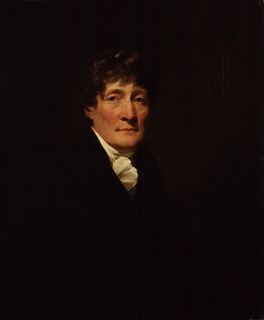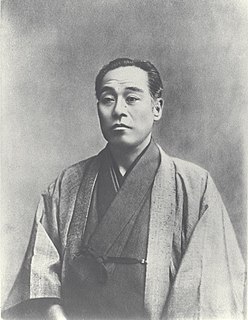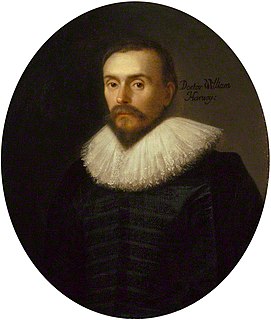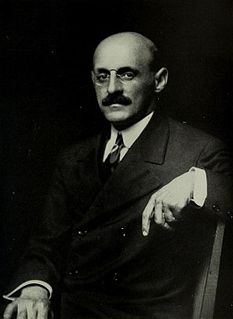A Quote by Samuel Johnson
Among the many inconsistencies which folly produces or infirmity suffers in the human mind, there has often been observed a manifest and striking contrariety between the life of an author and his writings... Those whom the appearance of virtue or the evidence of genius has tempted to a nearer knowledge of the writer, in whose performances they may be found, have indeed had frequent reason to repent their curiosity.
Related Quotes
No one suffers so much as he [the genius] with the people, and, therefore, for the people, with whom he lives. For, in a certain sense, it is certainly only "by suffering" that a man knows. If compassion is not itself clear, abstractly conceivable or visibly symbolic knowledge, it is, at any rate, the strongest impulse for the acquisition of knowledge. It is only by suffering that the genius understands men. And the genius suffers most because he suffers with and in each and all; but he suffers most through his understanding. . . .
By the consultation of books, whether of dead or living authors, many temptations to petulance and opposition, which occur in oral conferences, are avoided. An author cannot obtrude his service unasked, nor can be often suspected of any malignant intention to insult his readers with his knowledge or his wit. Yet so prevalent is the habit of comparing ourselves with others, while they remain within the reach of our passions, that books are seldom read with complete impartiality, but by those from whom the writer is placed at such a distance that his life or death is indifferent.
Indeed, I have observed one ingredient, somewhat necessary in a man’s composition towards happiness, which people of feeling would do well to acquire; a certain respect for the follies of mankind: for there are so many fools whom the opinion of the world entitles to regard, whom accident has placed in heights of which they are unworthy, that he who cannot restrain his contempt or indignation at the sight will be too often quarrelling with the disposal of things to relish that share which is allotted to himself.
The Man of Genius may at the same time be, indeed is commonly, an Artist, but the two are not to be confounded. The Man of Genius,referred to mankind, is an originator, an inspired or demonic man, who produces a perfect work in obedience to laws yet unexplored. The artist is he who detects and applies the law from observation of the works of Genius, whether of man or nature. The Artisan is he who merely applies the rules which others have detected. There has been no man of pure Genius, as there has been none wholly destitute of Genius.
It is comfortable to see the standard of reason at length erected, after so many ages, during which the human mind has been held in vassalage by kings, priests, and nobles; and it is honorable for us to have produced the first legislature who had the courage to declare that the reason of man may be trusted with the formation of his own opinions.
How can we judge fairly of the characters and merits of men, of the wisdom or folly of actions, unless we have . . . an accurate knowledge of all particulars, so that we may live as it were in the times, and among the persons, of whom we read, see with their eyes, and reason and decide on their premises?
I destroy because for me everything that proceeds from reason is untrustworthy. I believe only in the evidence of what stirs my marrow, not in the evidence of what addresses itself to my reason. I have found levels in the realm of the nerve. I now feel capable of evaluating the evidence. There is for me an evidence in the realm of pure flesh which has nothing to do with the evidence of reason. The eternal conflict between reason and the heart is decided in my very flesh, but in my flesh irrigated by nerves.
In its broad sense, civilization means not only comfort in daily necessities but also the refining of knowledge and the cultivation of virtue so as to elevate human life to a higher plane... It refers to the attainment of both material well-being and the elevation of the human spirit, [but] since what produces man's well-being and refinement is knowledge and virtue, civilization ultimately means the progress of man's knowledge and virtue.
All the delights of sense, or heart, or intellect, with which you could once have tempted him, even the delights of virtue itself, now seem to him in comparison but as the half nauseous attractions of a raddled harlot would seem to a man who hears that his true beloved whom he has loved all his life and whom he had believed to be dead is alive and even now at his door.
Harvey was not content merely to gather knowledge; he digested and arranged it under the guidance of the faculties which compare and reason. ... Harvey appears to have possessed, in a remarkable degree, the power of persuading and conciliating those with whom he came in contact. In the whole course of his long life we hear nothing either of personal enemies or personal enmities ... one of the great men whom God, in virtue of his eternal laws, bids to appear on earth from time to time to enlighten, and to ennoble mankind.
We frequently fall into error and folly, not because the true principles of action are not known, but because for a time they are not remembered; he may, therefore, justly be numbered among the benefactors of mankind who contracts the great rules of life into short sentences that may early be impressed on the memory, and taught by frequent recollection to occur habitually to the mind.
Curiosity, which may or may not eventuate in something useful, is probably the most outstanding characteristic of modern thinking ... Institutions of learning should be devoted to the cultivation of curiosity, and the less they are deflected by the consideration of immediacy of application, the more likely they are to contribute not only to human welfare, but to the equally important satisfaction of intellectual interest, which may indeed be said to have become the ruling passion of intellectual life in modern times.

































